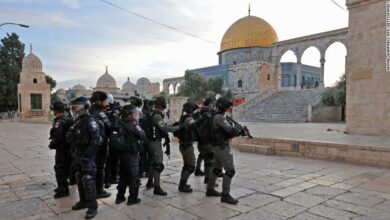The inauguration of the country’s first elected president on 30 June was meant to mark the final step in the country’s so-called “transition,” with a long-heralded handover of power from the Supreme Council of the Armed Forces to a civilian government, complete with an elected parliament and a new constitution.
Instead, a year and a half after the revolution began, astonishingly little has been accomplished with regard to laying down the foundations of a post-Hosni Mubarak state. The popularly elected People’s Assembly was dissolved, and the Shura Council appears to be headed to a similar fate. The Constituent Assembly tasked with drafting the new constitution is facing deep divisions, and an upcoming court case challenging its legitimacy may result in the disbanding of the 100-member body for a second time.
In fact, the presidency is the only significant elected representative office in government, though its powers have been severely curtailed by an 11th-hour constitutional declaration, issued unilaterally by the ruling generals, that carves out SCAF as a fourth branch of government in what has been dubbed the final stage of a constitutional coup.
Meanwhile, the state budget for the upcoming fiscal year was put together by the SCAF-appointed Cabinet and approved by the military generals, without any prior consultation, in the absence of a sitting parliament. Critics say the new budget allows for little social and fiscal reform.
President Mohamed Morsy has yet to form a government but he is widely expected to cede control over assigning the “sovereign” ministries, that by most accounts include Defense, Interior, Foreign, Justice, Finance and Information, to the military. The very notion of a “sovereign ministry” within an elected government is a profoundly undemocratic one and its casual acceptance is a testament to the entrenched nature of the deep state in Egypt.
Morsy’s success in the presidential race was celebrated by many supporters of the revolution who saw his win as a significant victory over lingering elements of Mubarak’s National Democratic Party. Yet an even more important battle was lost in the struggle over the county’s new constitution, where SCAF has long made clear its intention to cement its political and economic autonomy.
The constitutional amendments issued by SCAF last month grant it all of the powers and more of the “Selmy Document,” first proposed in November, which sparked massive outrage at the time: veto power over articles in the new constitution, the right to appoint an entirely new constituent assembly, and secrecy around the military budget. Yet the political backlash this time around was less pronounced and was dampened even further after the announcement of Morsy’s win.
Perhaps SCAF’s biggest achievement to date has been to lower the popular standards of an acceptable transition through a relentless combination of legal manipulation, ad hoc decision-making and sporadic violence that has left opponents confused and exhausted, and the public yearning for a return to normality.
Yet it is important to note that the current mangled state of Egypt’s political landscape is a direct consequence of the decision by the majority of political and revolutionary forces after Mubarak’s ouster to entrust the military with overseeing the transition to civilian democratic rule. The same military that this month will celebrate the 60th anniversary of the 1952 coup that brought it to the helm of power and secured its place as the backbone of autocracy in Egypt. Six decades on, the army appears to regard Egyptian citizens as an unwanted burden — bothersome guests in a state they control. When the 25 January uprising threatened to topple the state, Hosni Mubarak was the lizard’s tail that SCAF saw fit to sacrifice, limiting the revolution to a coup.
SCAF has also been blessed by its political opponents throughout the course of the transition. The Brotherhood has been rightly criticized for cozying up to the ruling generals, most notably helping to pass the March 2011 constitutional referendum that set up an incoherent political process from which they stood to benefit. Yet liberal and secular forces have been just as guilty, if not more so, of willingly ceding power to SCAF in their bid to stem the rise of Islamists in government.
The only group that has unwaveringly stood against military rule for much of the transition has been the core of the revolutionary youth through continued street protests, advocacy and guerrilla media campaigns. For their troubles they have been shot at, tear gassed, beaten, arrested, blinded and killed. An entire generation has spent the past year and a half shuttling between hospitals, morgues, police stations and jails in a struggle for which they were insulted and vilified by much of the political elite.
While SCAF appears to be winning the fight, in many ways it finds itself in a weaker position than before the revolution began. There is active opposition to the military’s plans and open discussion and debate over its political and economic privileges. Last month’s power grab can be interpreted as an act of desperation as opposed to hubris. In that sense, the military’s fears augur well for the prospect of change.
Sharif Abdel Kouddous is an independent journalist based in Cairo and a fellow at The Nation Institute.
This article was originally published in Egypt Independent's weekly print edition




